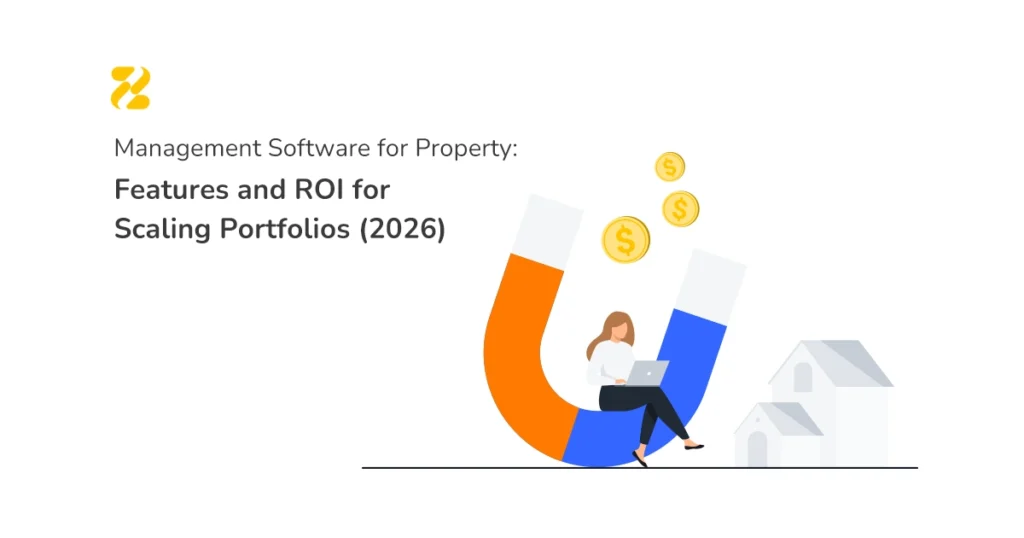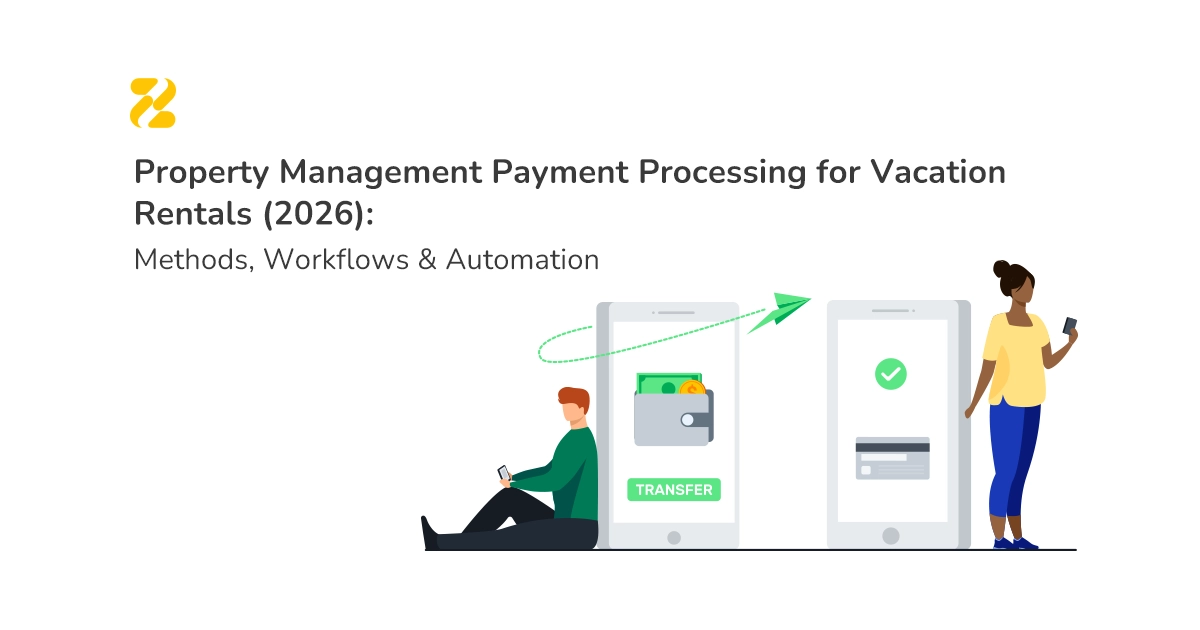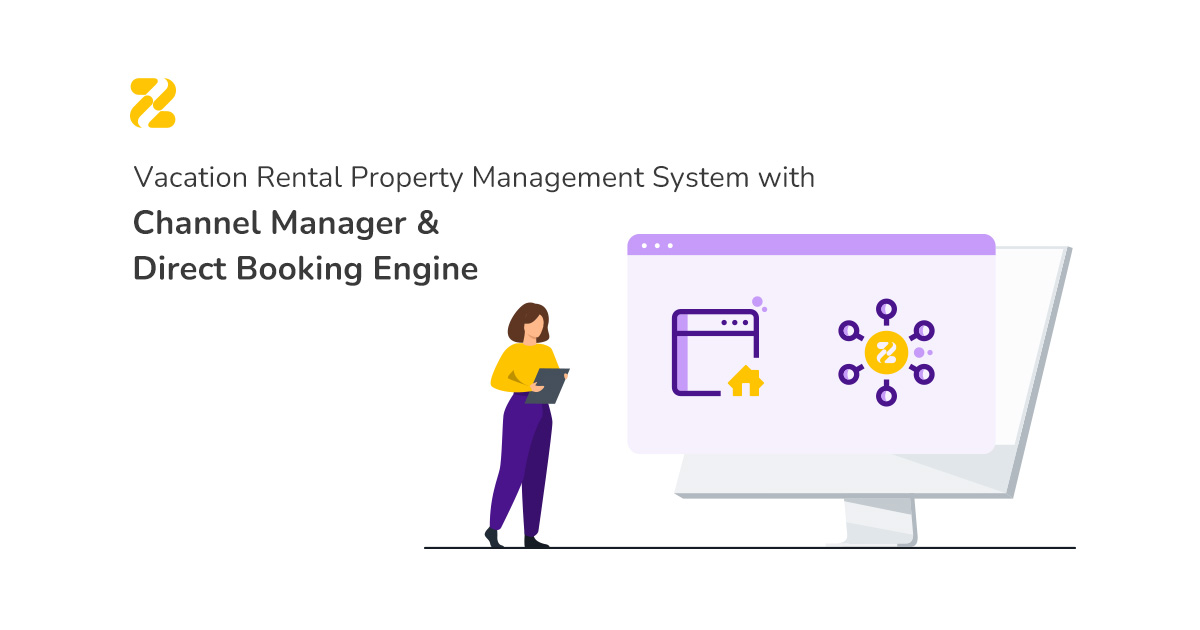For professional property managers, the ambition to scale a portfolio is often hampered by existing infrastructure. Managing ten units demands focus. Managing hundreds demands control and intelligence. The transition from growth aspiration to operational reality requires a step change in approach. Relying on patchwork systems creates bottlenecks that inhibit profitability and limit your capacity.
This expert guide explores how comprehensive management software for property transforms scaling operations and maximises revenue potential. Investing in this type of specialised rental management software provides the foundation for ambitious growth. Property managers should understand the comprehensive approach to scaling their business.
Also, a full guide to modern solutions for property managers is available to read on our solutions page.
Table of Contents
Signs You’ve Outgrown Spreadsheets
The pursuit of efficiency should not lead to administrative burnout. When property portfolios exceed a certain size, manual operations become archaic. Continuing with these outdated methods is like sending a fax in 2026: slow, needlessly complex, and entirely inadequate for the pace of modern business. The solution lies in powerful property management software. Recognising when manual systems stop serving you is the first step toward reclaiming control.
Scaling property management relies on eliminating critical operational bottlenecks. One major hazard is the double booking dilemma. Manually updating calendar availability across multiple online travel agencies (OTAs) is a high-risk activity. A single failure costs revenue and severely damages the brand’s reputation. Comprehensive rental management software addresses this.
Furthermore, coordinating cleaners and vendors without a centralised system creates a maintenance maze. This results in an ‘endless cycle’ of reactive tasks. This administrative burden is substantial: technology users report saving an average of 30 hours per week on core tasks, confirming that manual work severely prevents managers from focusing on strategic portfolio growth.
Financial complexity presents another clear sign of system failure. Relying solely on generic spreadsheets or basic accounting ledgers obscures genuine profitability per unit. Manual processes mean operational inefficiency is not just an internal drag. It becomes an external threat to your business viability. For instance, poor communication tracking (a result of manual systems) directly impacts guest satisfaction scores. These scores now heavily influence how platforms like Airbnb rank listings. Therefore, automation is not merely about saving time; it is a defensive strategy for protecting future revenue streams.
Features That Matter: The Triple Threat of PMS, Channel Management, and Accounting
Modern property management software is far more than a digital ledger. It is a singular, intelligent platform designed for high-volume, complex portfolios. Disconnected tools drain resources and introduce costly errors. Enterprise-level solutions unify three essential functions: Core PMS, Channel Management, and Financial Accounting.

Core PMS and Automation
The product must offer robust workflow automation, acting as a supportive co-pilot. Automated tasks include check-in instructions, pre-stay messages, and cleaning assignments. This saves countless hours and standardises the guest experience. A modern guest experience platform handles pre-stay communication and digital check-in. This automation drives consistently, higher satisfaction scores, and positive reviews.
For 2026, the focus must shift to innovation. AI-based automation handles routine scheduling. Advanced platforms offer predictive maintenance analytics. This functionality allows managers to anticipate property upkeep needs proactively. Such foresight extends asset lifespan and minimises expensive emergency costs.
Enterprise-Grade Channel Management
For large portfolios, real-time synchronisation is entirely non-negotiable. The platform must connect deeply with major OTAs, including Airbnb, Vrbo, and Booking.com. Flawless channel manager synchronisation is crucial. This eliminates the costly operational headache of double bookings and ensures rate parity. This unified view of inventory across all booking sources is essential for maximising occupancy and profit.
Integrated Financial Accounting
Generic accounting tools lack the specialised structure property management requires. Property accounting demands guided workflows for managing deposits, calculating owner distributions, and preparation for tax filing. For large portfolios, adopting integrated trust accounting simplifies compliance and provides auditable financial transparency. This integrated approach ensures that all transactional data flows automatically. It removes the need for error-prone manual data entry between systems.

Owner Statement Fields That Prevent Disputes
Building owner trust is a core responsibility of any property manager. This relationship hinges entirely on clear communication and auditable financial statements. Disputes often arise from ambiguity surrounding fees or non-itemised expenses. The technology must act as a Caregiver, providing assurance and clarity.
Professional managers need to provide owners with a detailed monthly financial report card. This is nearly impossible if transaction details are manually collated from disparate sources, such as Stripe, bank accounts, and various OTA payouts. A modern owner portal should offer more than just end-of-month reports. It should provide real-time updates and maintenance records in one place. This transparency immediately reduces questions and strengthens the professional relationship.
Owner statements must differentiate clearly between property management fees, routine maintenance costs, and capital expenditures. Clarity on the revenue source (OTA vs. Direct Booking) proves the manager’s value and informs strategic decisions. The software must provide an integrated audit trail. This trail tracks all invoices, calculated fees, and distributed funds. This detailed documentation acts as essential legal protection for the manager, as well.
Essential Fields for Dispute-Free Owner Statements
| Field Category | Required Detail | Benefit (Caregiver Archetype) |
| Income Clarity | Itemised Booking Revenue (by OTA/Direct), Tax Collection, Late Fee Attribution. | Full transparency on every pound earned and its source. |
| Expense Itemisation | Detailed Maintenance Logs, Vendor Invoices/Receipts Attached, Management Fees (Calculated). | Auditable proof of every expenditure and fee deducted. |
| Financial Health | Reserve Balance Tracking, Owner Distribution Date/Amount, Year-to-Date (YTD) Performance Metrics. | Clear view of investment health and cash flow. |
Security and Payments: 3DS, Deposits, and the Audit Trail
Seamless online payments are an industry expectation. Around 80% of tenants and guests prefer paying rent online. However, this convenience must be robustly secured. For property managers operating in the UK and European Economic Area (EEA), compliance is mandatory. Regulations like the second Payment Services Directive (PSD2) require Strong Customer Authentication (SCA).
SCA requires consumers to verify their identity using a combination of two factors. This could be a password and a code sent to a mobile device. The technology that enables this extra layer of security for online card transactions is 3D Secure (3DS). Specifically, version 2 is now mandatory for transactions that meet SCA requirements. Compliance is not optional for UK businesses. If 3DS is not properly integrated, payments are likely to fail. This exposure leaves the manager vulnerable to fraud liability and high chargeback rates. A sophisticated PMS integrates 3DS natively into the payment flow. This ensures legal compliance and shifts fraud liability away from the business.
Beyond transactional security, the platform must manage financial risk related to bookings. This includes the efficient handling of deposits, pre-authorisations, or damage waivers. Finally, an unbroken, time-stamped audit trail of all transactions, payments, and refunds provides confidence. This protects the manager from regulatory scrutiny and owner disputes.

ROI Worksheet: Quantifying Your Path to Profitability
For established businesses, the decision to purchase a premium software solution must be grounded in measurable financial returns. Calculating Return on Investment (ROI) moves the conversation from cost to strategic investment. It provides a clear metric for management success. The global property management market is projected to reach $28 billion by 2028, growing significantly. To capitalise on this growth, investment in efficiency is paramount.
The largest component of ROI for property management software is time savings. Studies show that automation saves over 20 hours per listing through streamlined workflows and reduced manual tasks. Furthermore, over 60% of property managers report improved operational efficiency after adopting dedicated software. This is because automation directly impacts revenue drivers: streamlined tenant screening reduces vacancy periods, and AI-powered communication improves lead conversion rates.
The most actionable way to quantify this advantage is by measuring the financial impact of the time returned to the business. This time allows managers to focus on strategic client acquisition, rather than repetitive administrative work. Specialised short-term rental automation platforms also integrate dynamic pricing. This maximises occupancy and profit instantly. This ability to absorb more units without a proportional increase in fixed staffing costs is the definition of profitable scaling.
Property Management Software ROI Calculation Framework
| Component | Metric | Value Quantification |
| Time Savings | Minutes saved per task (e.g., owner reporting, communication). | Minutes Saved $\times$ Hourly Rate $\times$ Units Managed Annually. |
| Productivity Gain | Reduction in errors (e.g., double bookings, manual data entry). | Cost Avoidance in Vacancy or Error Resolution. |
| Scaling Potential | Ability to manage new units without adding staff. | Estimated Gross Revenue from New Capacity. |
FAQs for Property Management Software Buyers
How much does enterprise property management software cost?
Pricing models for vacation rental technology vary significantly based on portfolio size and feature set. The two main structures are unit pricing and tiered plans. Small operators might pay £1 to £10 per unit per month. However, property managers with hundreds of units often negotiate custom, enterprise pricing. Buyers must look beyond the advertised monthly rate. Undisclosed costs often include mandatory onboarding fees, support charges, or high payment processing rates. Transparent platforms clearly outline all potential fees.
How can I maintain a personal touch when managing hundreds of guests?
Maintaining personalised service requires sophisticated automation. Property managers must utilise centralised templates and custom triggers to deploy customised communications across multiple channels (email, SMS). This approach ensures prompt, high-quality guest interactions, which is vital for achieving high review scores and securing repeat business. This system allows you to scale without losing the human element.
Conclusion
Adopting advanced management software for property is essential for any professional property manager aiming to scale profitably in 2026. The shift from fragmented spreadsheets to a unified SaaS platform delivers substantial, measurable ROI. This is achieved primarily through operational automation and significant time savings, often exceeding 20 hours per listing. Essential features for success include integrated channel management for perfect synchronisation, transparent integrated trust accounting, and robust owner portals. Furthermore, compliance with UK financial security mandates, like 3DS for strong customer authentication, mitigates fraud risk. Investing in this comprehensive vacation rental technology provides the innovative capacity for aggressive growth while ensuring the reliable financial control necessary for long-term success.
Essential features for success include integrated channel management for perfect synchronisation, transparent integrated trust accounting, and robust owner portals. Furthermore, compliance with UK financial security mandates, like 3DS for strong customer authentication, mitigates fraud risk. Investing in this comprehensive vacation rental technology provides the innovative capacity for aggressive growth while ensuring the reliable financial control necessary for long-term success.
Image by pch.vector on Freepik.




